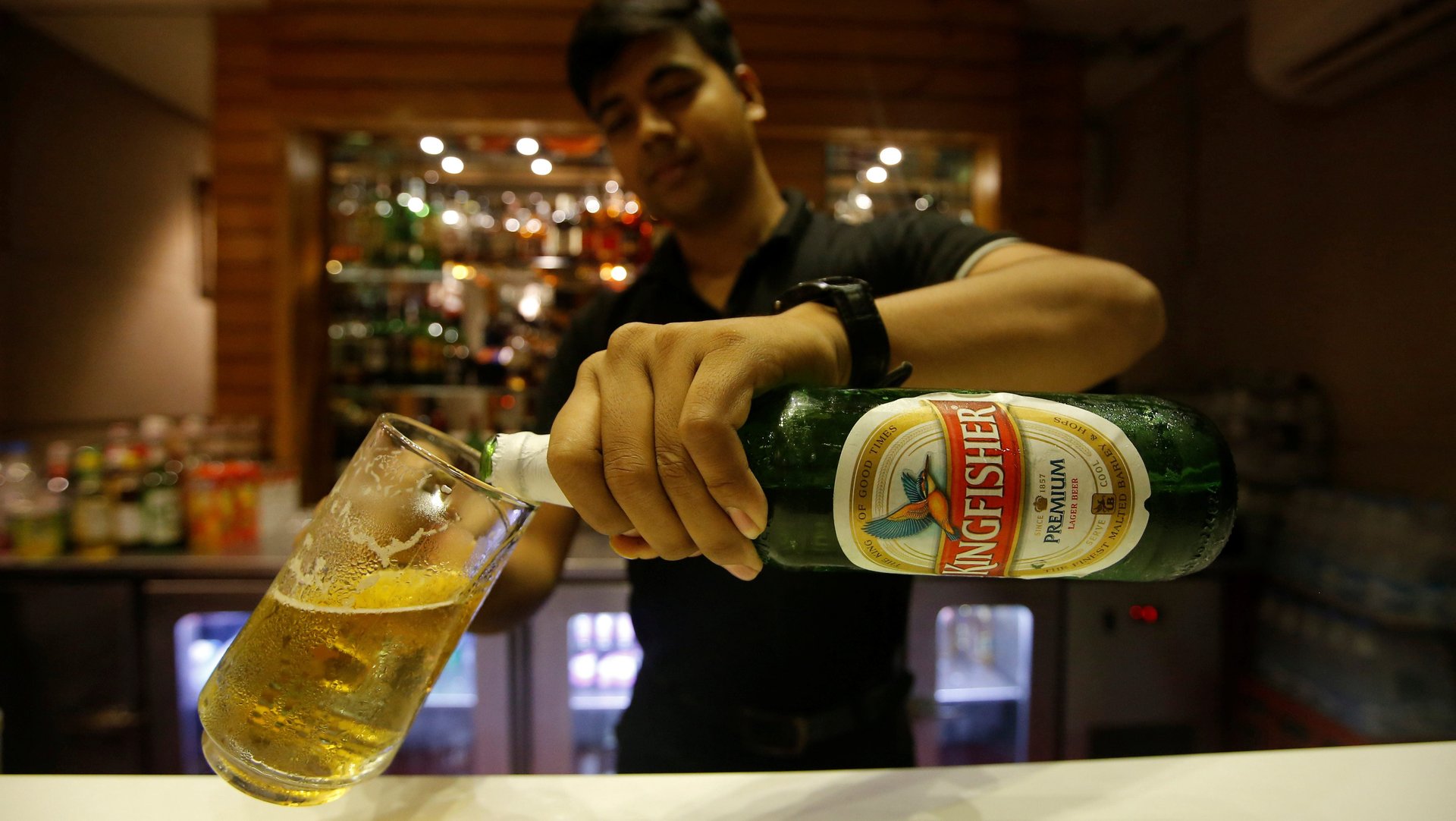“Can we drink or not?” Official flip-flops ruin Indian beer makers’ summer fizz
India’s flip-flop on permitting alcohol sales after a prolonged ban during the coronavirus lockdown has left beer manufacturers in the lurch.


India’s flip-flop on permitting alcohol sales after a prolonged ban during the coronavirus lockdown has left beer manufacturers in the lurch.
On May 4, the country lifted its 40-day ban on the sale of alcohol but was forced to shut stores in some areas within hours after massive crowds of buyers threatened to squander all the benefits of the social distancing norms gained till now. In states such as Maharashtra and Kerala, sales have been stopped indefinitely. In Delhi, the government has announced a 70% “coronavirus tax” to discourage shoppers.
“With beer being a perishable product unlike other alcohol offerings, it is difficult to deal with disruption in market demand and sudden changes in retail policies,” Abhinav Jindal, CEO of Kimaya Himalayan, a Delhi-based beverage company that makes Bee Young and Yavira brands of beer, told Quartz.
Beer manufacturers are sweating for another reason, too. “Beer players make money in the summer season (April-May). If this period passes away due to an uncertain business environment, how do you make money?” said Prabhtej Singh Bhatia, founder of Chhattisgarh-based Simba Beer.
Playing catch-up
Indians consume beer worth around Rs56,000 crores ($7.5 billion) annually. The country has 90 medium- to large-scale breweries and over 200 microbreweries, which together produce over 330 million cases of beer annually, according to All India Brewers’ Association.
On March 25, when the Narendra Modi government abruptly announced a nationwide lockdown to curtail the spread of Covid-19, these firms had no time to manage inventories in stock or in transit. For a month after that, there was no legal sale of alcohol in India. The beer makers booked heavy losses as the stocks went bad.
Kimaya Himalayan, for instance, took a hit of around Rs1 crore in April. Mumbai-based Drifter Breweries was forced to dump 2,000 litres of beer. Drifter, which sells through its own outlets or through other restaurants and bars, is struggling to sell as eateries are still shut and will likely remain so longer, founder Nayan Shah said.
Confusion continues
The bigger concern now is the confusion over where they can sell their products. For instance, in the southern Indian state of Tamil Nadu, liquor shops are shut in its capital, Chennai, a coronavirus hotspot. Yet, sale is permitted in other parts of Tamil Nadu. In Uttar Pradesh, the government has allowed sales in the tourist city of Agra, but only in areas with no infection.
Such dynamic and ever-changing demarcations add to the stress on the supply chains, which are still recovering from the lockdown. Companies face unprecedented complexity in maintaining supplies.
Bhatia of Simba Beer assumes that there will be shortages in certain areas. “Given the dynamic situation on the ground, players have no option but to accept that supply outages will happen,” Bhatia said.
Some are also coming up with makeshift solutions. For instance, instead of pushing products in big cities such as Delhi and Bengaluru, Simba Beer is focusing on the northeast, Jharkhand, and Uttar Pradesh—markets that are not majorly hit by the pandemic.
Experts believe that the beer makers will need to remain nimble to recover sales and to take advantage of pent-up demand. “In these challenging times, no businesses, including beer makers, would be callous enough to start production at full capacity,” said N Chandramouli, CEO of Trust Research Advisory, a Mumbai-based market-intelligence firm.